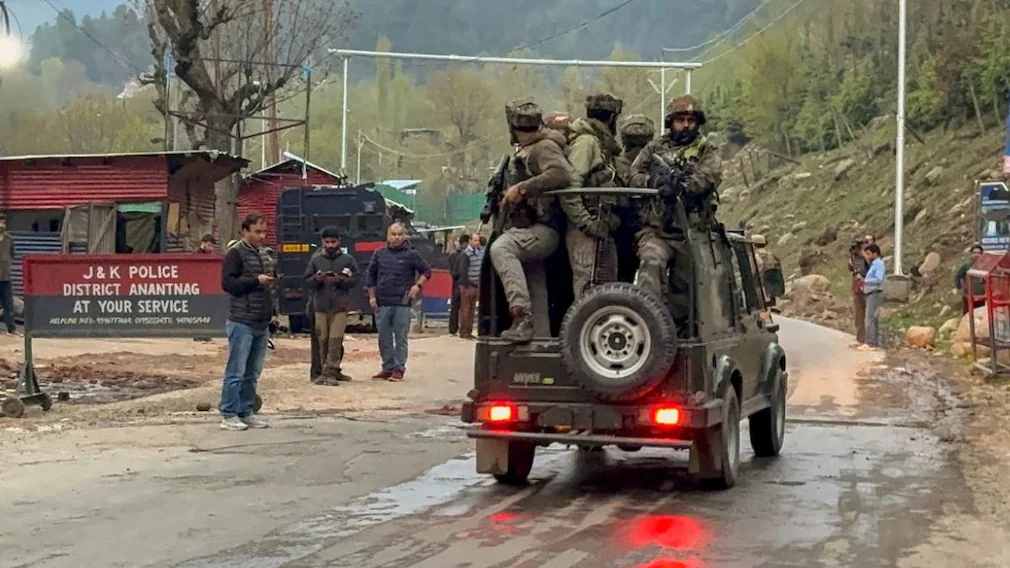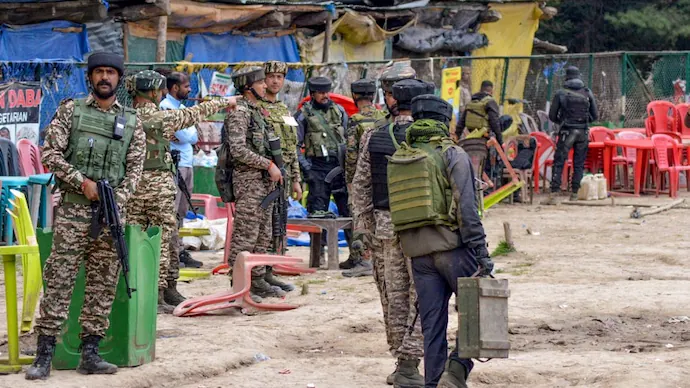Persona non grata declarations and the water treaty have emerged as central issues following the Pahalgam terror attack, which has reignited diplomatic tensions and prompted India to reassess its security strategies and bilateral agreements with its western neighbor.
Here are five key takeaways from the incident:
1. The attack and its immediate aftermath
On April 20, 2025, armed militants ambushed a convoy in Pahalgam, killing five security personnel and injuring several others. Security has been tightened in Jammu and Kashmir thanks to the swift response of local and national agencies. The nature of the attack suggests cross-border involvement, reviving public and political discourse around diplomatic accountability.
2. Demand to declare offending diplomats persona non grata
In the wake of the attack, there is mounting pressure on the Ministry of External Affairs to declare some of the neighbouring country’s diplomats persona non grata. The term, enshrined in international law, refers to foreign officials who are no longer welcome in the host country. While the measure is largely symbolic, it signals a serious breakdown in trust and can lead to reciprocal expulsion.

Declaring someone persona non grata is often a last resort. However, in this climate of growing hostility, many analysts see it as a necessary diplomatic response to repeated violations of sovereignty.
3. Renewed scrutiny of Indus Water Treaty
Beyond diplomatic expulsions, the Pahalgam attack has sparked debate about the Indus Water Treaty, a decades-old agreement governing water sharing between India and Pakistan. Signed in 1960, the treaty has withstood multiple wars and conflicts. Nevertheless, in recent years, India has considered reconsidering its provisions due to cross-border terror incidents.
Experts argue that India enjoys significant leverage under the water treaty, particularly with regard to the western rivers allocated to Pakistan. Any formal review of this treaty could have far-reaching consequences, particularly for agriculture and power generation in the region.
4. International reactions and regional stability
The global community, including the United Nations and key allies, has condemned the Pahalgam terror attack. Expressing solidarity with India, several countries have also urged restraint and diplomatic dialogue. Nevertheless, repeated provocations raise concerns over regional instability, especially if India goes ahead with declaring or amending the water treaty as persona non grata.
Both actions – expelling diplomats and reconsidering the treaty – are seen as strong, though non-military, responses that could carry significant geopolitical weight.
5. The way forward: strategic patience or proactive diplomacy?
As India considers its options, the choices ahead are complex. Declaring foreign officials persona non grata may escalate tensions, yet it is a clear message of zero tolerance. In the meantime, the renegotiation of the water treaty could prove to be a turning point in South Asia’s geopolitical landscape.
In the weeks ahead, diplomatic engagement, internal security measures and public sentiment will shape the country’s next steps. The balance between national interest and international responsibility will be crucial.
Conclusion
The Pahalgam terror attack has once again forced India to confront persistent threats to its sovereignty. Whether through the symbolic gesture of declaring persona non grata, or the more significant act of changing the water treaty, New Delhi is being pushed towards decisive action. How this proceeds will have implications not just for bilateral relations but also for the broader stability of the South Asian region.
Also Read:- Pahalgam Terrorist Attack in Kashmir: Tourists Among Several Killed in Heinous Kashmir Attack

